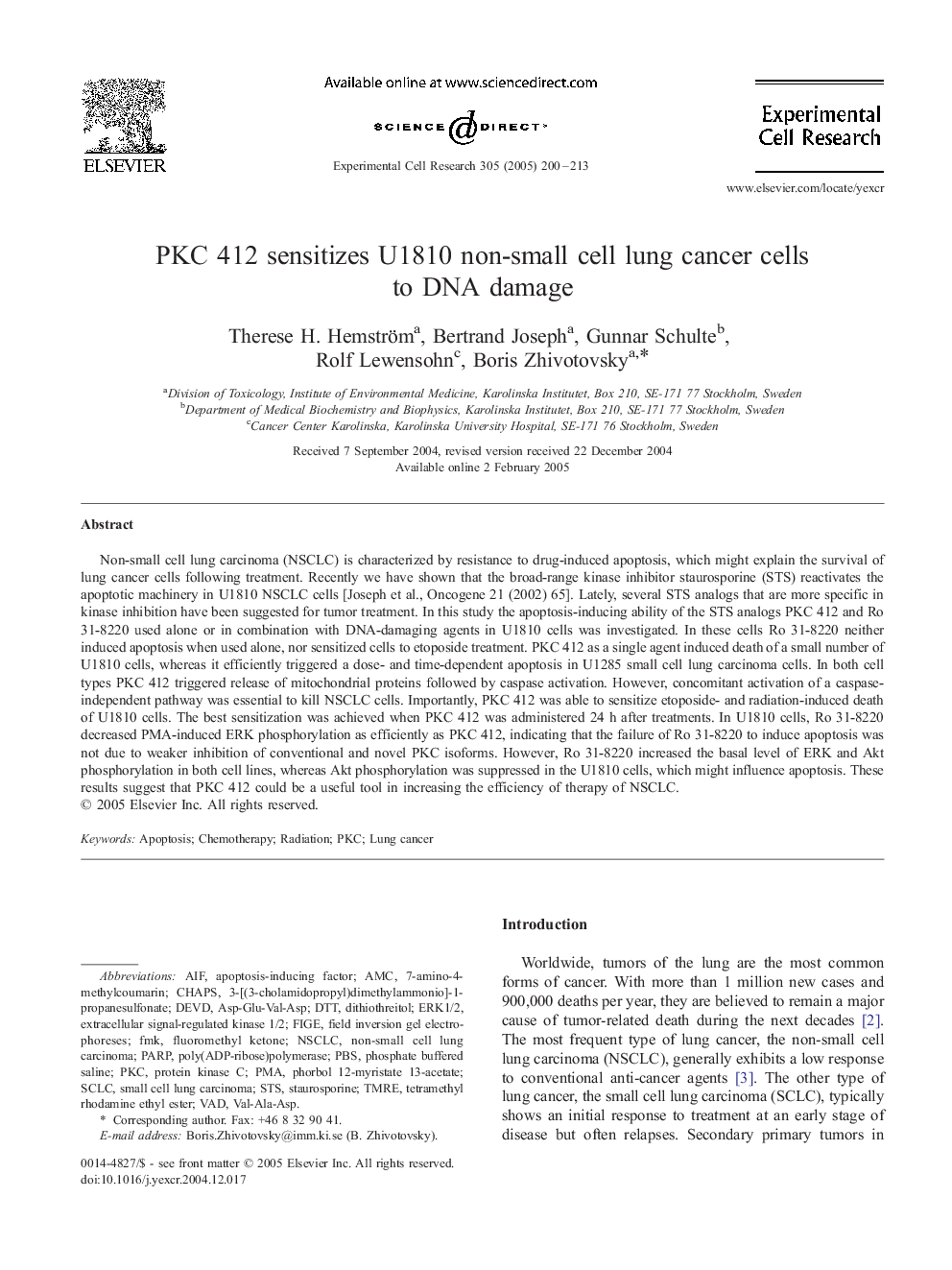| Article ID | Journal | Published Year | Pages | File Type |
|---|---|---|---|---|
| 10905494 | Experimental Cell Research | 2005 | 14 Pages |
Abstract
Non-small cell lung carcinoma (NSCLC) is characterized by resistance to drug-induced apoptosis, which might explain the survival of lung cancer cells following treatment. Recently we have shown that the broad-range kinase inhibitor staurosporine (STS) reactivates the apoptotic machinery in U1810 NSCLC cells [Joseph et al., Oncogene 21 (2002) 65]. Lately, several STS analogs that are more specific in kinase inhibition have been suggested for tumor treatment. In this study the apoptosis-inducing ability of the STS analogs PKC 412 and Ro 31-8220 used alone or in combination with DNA-damaging agents in U1810 cells was investigated. In these cells Ro 31-8220 neither induced apoptosis when used alone, nor sensitized cells to etoposide treatment. PKC 412 as a single agent induced death of a small number of U1810 cells, whereas it efficiently triggered a dose- and time-dependent apoptosis in U1285 small cell lung carcinoma cells. In both cell types PKC 412 triggered release of mitochondrial proteins followed by caspase activation. However, concomitant activation of a caspase-independent pathway was essential to kill NSCLC cells. Importantly, PKC 412 was able to sensitize etoposide- and radiation-induced death of U1810 cells. The best sensitization was achieved when PKC 412 was administered 24 h after treatments. In U1810 cells, Ro 31-8220 decreased PMA-induced ERK phosphorylation as efficiently as PKC 412, indicating that the failure of Ro 31-8220 to induce apoptosis was not due to weaker inhibition of conventional and novel PKC isoforms. However, Ro 31-8220 increased the basal level of ERK and Akt phosphorylation in both cell lines, whereas Akt phosphorylation was suppressed in the U1810 cells, which might influence apoptosis. These results suggest that PKC 412 could be a useful tool in increasing the efficiency of therapy of NSCLC.
Keywords
STSPKCPARPphorbol 12-myristate 13-acetateAmCDEVDDTTTMREFMKPBSFIGEAsp-Glu-Val-Asp3-[(3-cholamidopropyl)dimethylammonio]-1-propanesulfonate7-amino-4-methylcoumarinERK1/2PMAAIFstaurosporineSCLCApoptosisdithiothreitolLung cancerNSCLCChemotherapyapoptosis-inducing factorPhosphate buffered salineFluoromethyl ketoneRadiationProtein kinase Cpoly(ADP-ribose)polymeraseCHAPSVADnon-small cell lung carcinomaSmall cell lung carcinomaextracellular signal-regulated kinase 1/2
Related Topics
Life Sciences
Biochemistry, Genetics and Molecular Biology
Cancer Research
Authors
Therese H. Hemström, Bertrand Joseph, Gunnar Schulte, Rolf Lewensohn, Boris Zhivotovsky,
